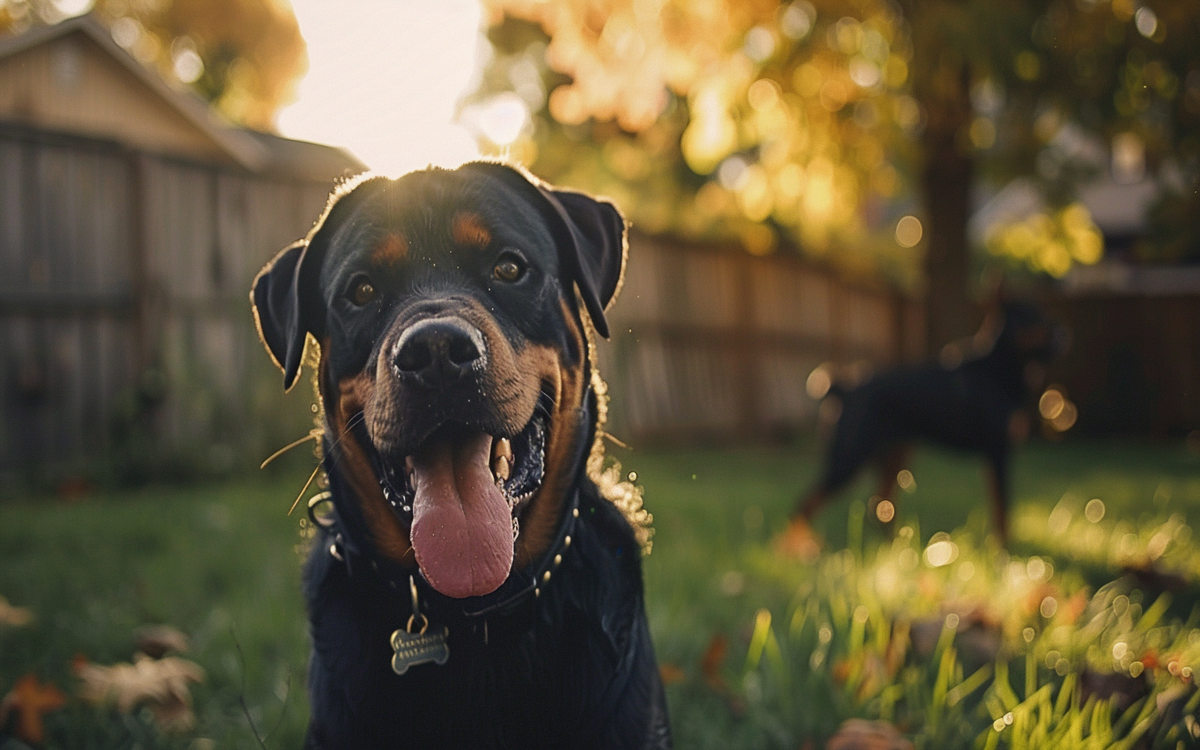Okay, picture this: you’re strolling through the park when you spot a dog that makes you do a double-take. Powerful build? Check. Glossy black and tan coat? Yep. That confident strut? Absolutely. It’s a Rottweiler, folks, and there’s way more to this breed than their tough-dog reputation.
Rotties, as they’re sometimes called, have hearts as big as their muscles. They’re fiercely loyal to their families, goofy clowns when they let loose, and surprisingly brainy. But, like any dog, they need the right owner – someone who’s ready for their energy, smarts, and that little bit of Rottie stubbornness.
Curious about whether this mighty breed is a match for you? Let’s dive in and discover what it’s really like to share your life with a Rottweiler!

Rottweilers: From Roman Roads to Family Sofas
History geeks, listen up! Our Rottie friends have some seriously cool origins. Picture this: all the way back in ancient Rome, these dogs weren’t just chilling on couches; they were the ultimate working dogs! Their ancestors were drover dogs, herding and guarding cattle as the Roman legions marched across Europe. Talk about a long commute!
As time went on, Rottweilers made their way to the town of Rottweil in Germany. This is where they got their name and started being known for their butchering skills. They’d help haul carts of meat to the market and protect their owners’ earnings. Imagine having your dog as your walking, barking bodyguard – pretty awesome, right?
But Rottweilers aren’t all work and no play. They’ve worn many hats over the years! They’ve pulled carts, worked with police, and even starred in movies. Today, while they still excel as guard dogs, their number one job is often being a beloved family member.
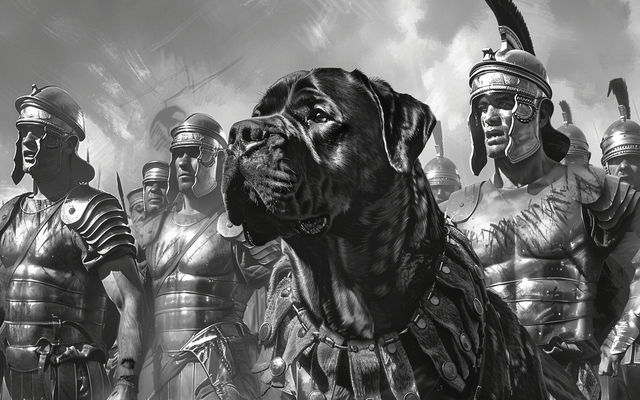
The Rottweiler Temperament: Loyal Guardian, Goofy Pal
Okay, let’s be real. Rottweilers have a certain reputation. Some people think they’re always in serious mode. But anyone who’s lived with a Rottie knows they’ve got a whole range of emotions under that serious-looking face.
- First and foremost Rottweilers are natural guardians: They’ve got protective instincts that run deep, which is why training and socialization are super important. They need to learn how to channel that protective energy into keeping their family safe without becoming overly suspicious of everyone they meet.
- But here’s the secret: Rottweilers are also total goofballs! Once they trust you and let their guard down, get ready for the zoomies, the silly head tilts, and the full-body wiggles. They love to play, and their enthusiasm is pretty contagious.
- Despite their size and strength: Rotties can be surprisingly gentle, especially with kids they know. Still, their size means playtime always needs supervision, just in case someone accidentally gets knocked over in all the excitement
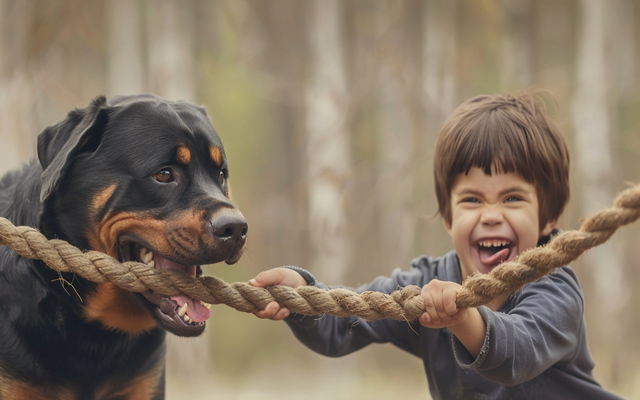
Rottweiler Appearance: Built for Power and Purpose
You can’t miss a Rottweiler in a crowd. They’re all muscle and sleek fur, built like the canine athletes they are! But their appearance isn’t just about looking tough; every part of their body was designed with their working history in mind.
Let’s talk about those classic Rottie markings. Their coat is almost always black with rich tan or mahogany markings on their cheeks, muzzle, paws, and above their eyes. Some pups even sport those adorable tan eyebrows! And that tail? Well, traditionally it was docked short, but more and more Rotties rock their natural tails these days.
Speaking of tails, did you know those strong hindquarters give Rotties a unique, bouncy trot? It’s a reminder of their cattle-driving past. And those broad paws? Perfect for the long-distance work they were bred for.
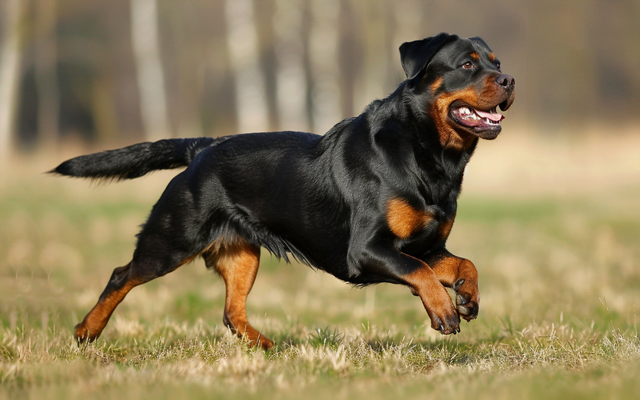
Living with a Rottweiler: More Than Just a Pet, a Partner
Okay, dog lovers, let’s get real: Rottweilers aren’t for everyone. They’re incredible dogs, but they need a special kind of owner – someone who’s up for the challenge and rewards of this powerful, intelligent breed.
- First, the obvious: Rotties need exercise! A bored Rottweiler is a recipe for a chewed-up sofa. We’re talking daily walks, runs, games of fetch… even better if you can get your Rottie involved in dog sports! They excel at agility, tracking, and obedience work, which is a great way to burn off energy and keep those big brains busy.
- Speaking of big brains, Rottweilers are smart cookies. This is awesome because they pick up training quickly, but it also means they need mental stimulation. Puzzle toys, training sessions, and learning new tricks will keep them happy and prevent them from inventing their own destructive forms of entertainment.
- Rotties form strong bonds with their families. This is amazing, but it’s important to establish yourself as the leader from day one. Consistent training and clear boundaries help them feel secure. With strong leadership, your Rottweiler will be your loyal companion for life.
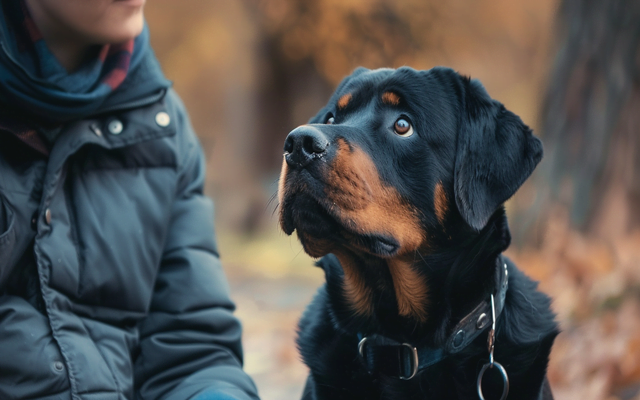
Training Your Rottweiler: It’s Not a Race, It’s a Journey
Remember those Rottie smarts and that hint of stubbornness? This means training is absolutely essential, and a little patience goes a long way. The good news is, Rottweilers love to please their people, making them incredibly rewarding to work with.
- Let’s start with the building block of a well-behaved Rottie – socialization! From puppyhood onward, introducing your Rottie to new people, dogs, places, and noises is essential. This teaches them that the world is a big, friendly place and reduces the chance of anxiety later in life.
- Obedience training isn’t just about showing off tricks (although those are fun too!). Basic commands like “sit,” “stay,” and “leave it” are crucial for everyday life. For advanced training and more precise communication, you might consider incorporating a dog whistle. Dog whistles can be particularly helpful when working with breeds known for their focus and responsiveness. Learn more about dog whistles here “Dog Whistles: Decoding Canine Hearing & Safe Training“.
- Rottweilers excel at advanced training, too. If you have the time and dedication, consider enrolling in agility classes, scent work training, or even therapy dog training together. These activities create a super strong bond and give your Rottweiler a sense of purpose.
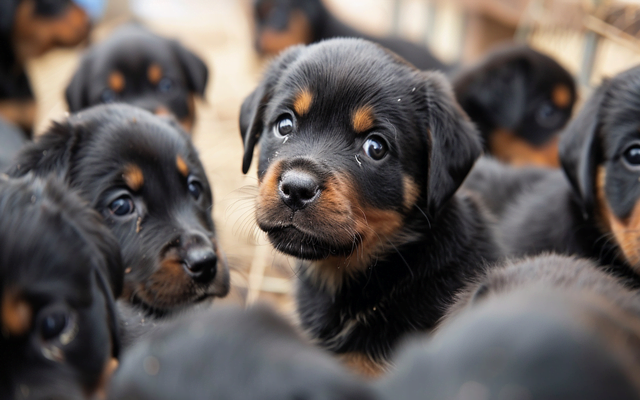
Rottweiler Care: Beyond the Brush
- Rottweilers are pretty low-maintenance in the grooming department. Their short coat needs a good brushing about once a week to get rid of shed hair and keep it shiny. During shedding season, you may need to brush more frequently, and a good de-shedding tool can be a lifesaver. Baths? Only when they get really muddy or have rolled in something smelly!
- Now, let’s talk about food, because a dog this size needs plenty of it! Choose a high-quality kibble formulated for large breeds. Since Rotties are prone to bloat (a serious condition), it’s best to split their food into smaller meals throughout the day rather than one giant bowlful.
- Rotties, like all dogs, need routine vet checkups to stay healthy. Some issues Rottweilers can be prone to include hip and elbow dysplasia, certain cancers, and heart problems. It is essential to discuss these issues with your veterinarian and review resources such as the Orthopedic Foundation for Animals (OFA) for health information, information filtering.
Finding Your Perfect Rottweiler Companion
Adding a Rottweiler to your life is a big decision, and it’s so important to do it responsibly. That means being realistic about your commitment level and finding a dog whose personality and energy match your own.
- Puppy mills and backyard breeders are absolute no-nos. They contribute to dogs with poor health and temperament problems. Instead, your first stop should be researching reputable Rottweiler breeders. These breeders prioritize health testing, early socialization, and raising well-adjusted pups.
- Don’t forget about adult Rottweilers in need! There are amazing Rottweilers and Rottie mixes waiting for homes in shelters and breed-specific rescues. Adopting an adult dog is wonderful because their personality has fully bloomed, and you’re giving a deserving dog a second chance.
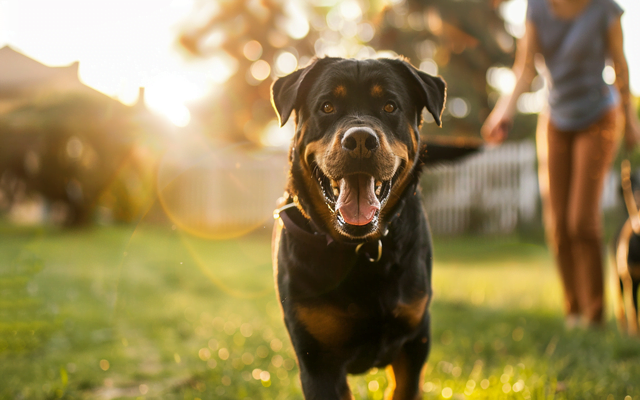
The Rottweiler: A Loyal Companion Worth Discovering
Rottweilers are more than just their reputation. Sure, they’re powerful protectors, but they’re also goofy playmates, eager learners, and incredibly loyal companions. With the right training, socialization, and care, a Rottweiler can be a wonderful addition to the right home.
If you’re looking for a dog who’s up for adventures, will always have your back, and loves snuggle time just as much as playtime, the Rottweiler might just be the perfect breed for you.
FAQs
Can a first-time dog owner handle a Rottweiler?
While Rottweilers are incredibly rewarding dogs, they’re not generally recommended for first-time owners. They require extensive training, socialization, confident leadership, and significant time commitment. If you’re a beginner but determined to own a Rottie, consider:
- Adopting a mature adult: Their personality is already developed, making it easier to assess suitability.
- Enrolling in breed-specific obedience classes: Work with a trainer experienced with Rottweilers.
- Being realistic about your lifestyle: Can you provide enough exercise, mental stimulation, and ongoing training?
How do I socialize my Rottweiler puppy if other dog owners are wary of the breed?
Understandably, some people might be hesitant around a Rottweiler puppy. Here’s how to proactively socialize:
- Controlled environments: Start with puppy classes and organized playgroups.
- Positive introductions: Ask friends with calm, friendly dogs for help with supervised interactions.
- Advocate for your pup: Explain that you’re dedicated to raising a friendly Rottie, and educate others about responsible ownership.
My Rottweiler seems bored – what kind of advanced training or activities would they enjoy?
Rottweilers thrive on challenges! Here are some ideas to keep them physically and mentally engaged:
- Agility or Rally Obedience: Perfect for their athleticism and intelligence.
- Scent work (nose work): Taps into their natural instincts, lots of fun!
- Canine freestyle: Teach your Rottie tricks and set them to music.
- Therapy dog training: A wonderful way for well-behaved Rotties to give back.
Are there common mistakes that lead to behavior problems in Rottweilers?
Absolutely! Here are some pitfalls to avoid:
- Not enough socialization: Can lead to fear or aggression.
- Inconsistent training: Rottweilers need clear rules and boundaries.
- Lack of mental stimulation: A bored Rottweiler finds their own (destructive) entertainment.
- Using harsh training methods: Rottweilers respond best to positive reinforcement.

My job is to make sure every fact is right and every article is a joy to read. I’m kind of like a dog trainer for information – I make it behave!

